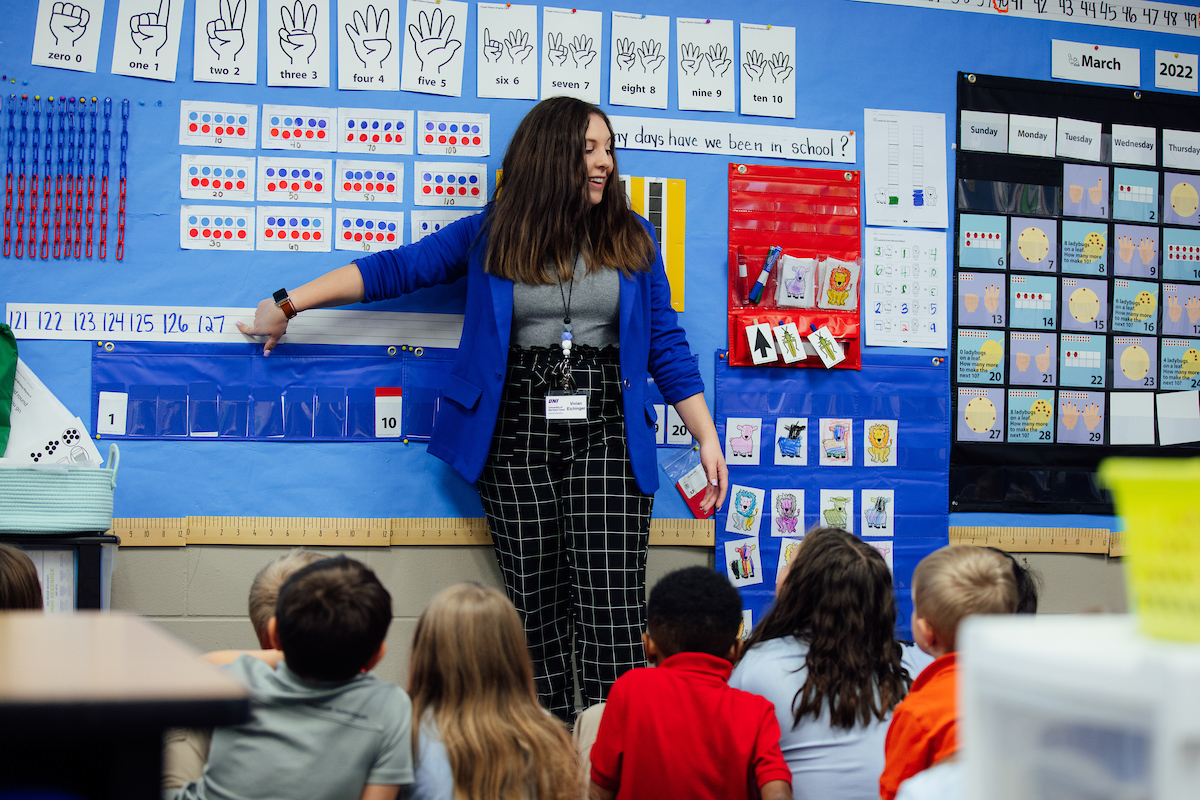UNI provides innovative alternative pathways to teacher licensure
The University of Northern Iowa remains Iowa’s best weapon for combatting the teacher shortage. Nearly 90% of UNI-educated teachers remain in the state after graduation. You can find UNI teacher alums in all 99 counties and in 99% of school districts in Iowa. Even as the total number of teacher education graduates has declined in the state in recent years, UNI has remained a consistent source for a high number of teachers in Iowa, graduating between 450 and 500 teachers each year.
Despite this consistency, UNI has refused to stay complacent in the wake of the teacher shortage, finding innovative ways to equip the next generation of teachers.
“UNI's alternative pathways to teacher licensure provide opportunities for many Iowans that otherwise would not have a clear means to become teachers,” said Benjamin Forsyth, associate dean for educator preparation at UNI. “These pathways are unconventional by design, but they still adhere to the same rigorous standards that allow us to produce so many high-quality teachers. We know that teachers are more likely to stay in the profession when they are well prepared, so we have worked hard to make sure that our alternative pathways maintain the same high-quality standards that students in our more traditional pathways receive.”
The Purple Pathway for Paraeducators is an accelerated, online and practice-based route for paraeducators to become licensed elementary and special education teachers. The first cohort of nearly 70 paraprofessionals from across the state started the program during the 2022-2023 academic year.
The Purple Pathway builds on the success of UNI’s online 2+2 elementary education program. This program, which has been in place for more than 25 years, allows adults to earn their teaching degree through flexible classes designed with place-bound working professionals in mind. The program targets those who are either pursuing an associate’s degree from a community college or a bachelor’s degree from an accredited institution or who have already obtained one of these degrees.

Another example of one of these programs is the Regents Alternative Pathway to Iowa Licensure (RAPIL), which brings the talents and expertise of professionals to Iowa’s classrooms. Candidates must have a bachelor’s degree and a minimum of three years post-baccalaureate work experience to qualify for admission. Designed with working professionals in mind, RAPIL is offered online with evening courses and Saturday face-to-face classes. The first year is classwork and the second year is a paid internship in a school in grades 5-12. Upon successful completion, RAPIL candidates are recommended for an initial Iowa teaching license.
Last summer, UNI also introduced Degree in Three, a partnership with Hawkeye Community College and Waterloo Community Schools allowing students to earn a bachelor’s degree in elementary education within just three years of high school graduation. Students are able to start earning college credits in high school, complete their associate’s degree within one year of high school graduation and complete their bachelor’s degree through UNI in just two more years. This program saves students money and allows them to enter the teacher workforce faster.
Each of these alternative pathways to teaching licensure shows UNI’s commitment to producing high-quality educators in the state of Iowa. UNI strives to provide the experience necessary for educators to remain in the profession to bring stability, continuity and, most importantly, expertise to our classrooms and schools.
